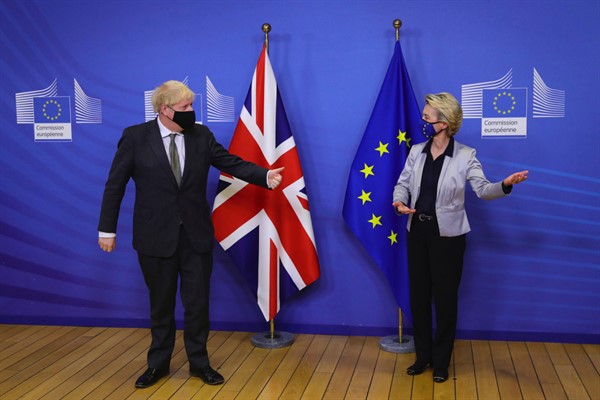Editor’s Note: This is the web version of our subscriber-only weekly newsletter, Europe Decoder, which includes a look at the week’s top stories and best reads from and about Europe. Subscribe to receive it by email every Thursday. If you’re already a subscriber, adjust your newsletter settings to receive it directly to your email inbox.
As is usual for August in Brussels, many issues are now parked for European Union officials to deal with upon la rentrée—or the return from vacation in early September. One of those thorny files is Brexit. In the seven months since the U.K.’s formal departure from the EU single market on Jan. 1, tensions between the EU and the U.K. have further inflamed, perhaps even more than many observers might have imagined, even taking the frequent standoffs in that relationship into consideration.
Last month, British Prime Minister Boris Johnson demanded that the “divorce deal” the U.K. painstakingly negotiated with the EU in 2019 and signed in January 2020 be scrapped and renegotiated. The demand was immediately rejected by the EU. Specifically, Johnson wants to renegotiate the part of the agreement concerning the status of Northern Ireland, in light of the political difficulty he has faced in implementing customs checks in the Irish Sea between Northern Ireland and the rest of the U.K. This arrangement—in which Northern Ireland has one foot in, one foot out of the EU’s common market—avoids putting a hard border on the island of Ireland, which would violate the Good Friday Agreement that brought an end to the Troubles. This solution to the so-called Northern Ireland backstop was in fact Johnson’s initiative to break the Brexit impasse in 2019, and one of his campaign pledges in the run-up to the 2019 general elections that gave him a solid parliamentary majority.

